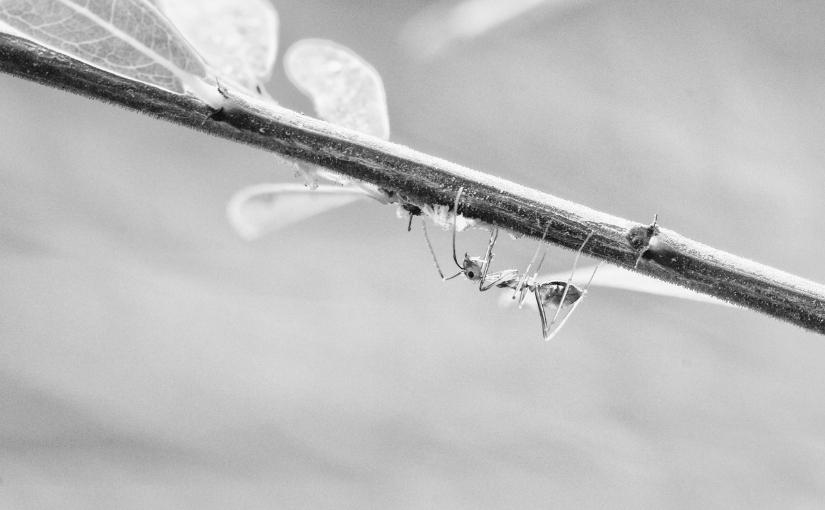Are Carpenter Ants Active During The Winter?

Winter in Canada can be challenging, but one of the upsides is that many of the pests that plague your homes are not active during the winter. Sometimes the cold weather kills them off after they have laid eggs to hatch when the weather warms up again. Others decrease activity to conserve energy until spring. Carpenter ants in the wild are usually among the latter group, but if they are in your home, their behaviour changes, and you may find that you need carpenter ant control even in the winter.
What Do Carpenter Ants Do During Winter in the Wild?
As long as carpenter ants remain in their natural habitat, they are actually beneficial creatures. By building their nests in soft, rotting wood, they help advance the decomposition of dead trees. During the winter, carpenter ants in the wild usually go dormant. Because food is usually not readily available due to the snow and freezing temperatures, they stop foraging. They retreat into the deepest recesses of their nests and huddle together for warmth. In the fall before winter, they eat more than usual to build up fat stores to sustain them until it is warm enough to forage again. They decrease their activity to conserve energy. The queen stops laying eggs during this time, putting a temporary pause on the growth of the colony.
What Happens to Carpenter Ants Inside a House?
Carpenter ants take their cues from the temperature in their environment. When the temperature drops to around 50 degrees Fahrenheit, the ants start to slow down and become more sluggish. This serves as a signal that it is time for them to hole up in their nests and go dormant. However, because you heat your home artificially in the winter, carpenter ants that are already living there do not receive the environmental cues to go dormant. Your home probably never reaches an internal temperature of 50 degrees Fahrenheit or less during the winter; if it did, your pipes could freeze. Therefore, it remains warm enough for carpenter ants in your home to stay active all winter.
Carpenter ants do not actually ingest wood. They only chew it up to dig tunnels where they build their nests. They feed on things such as fruit juices and other arthropods, living or dead. Warm temperatures inside your home allow them to keep foraging for food throughout the winter, and they often find it by getting into your cupboards and pantries.
Because carpenter ants in homes do not go dormant in winter, they can keep laying eggs and hatching new carpenter ant larvae, expanding the colony. All those new ants need more space, so the ants keep adding new tunnels to existing nests, doing property damage to your home in the process.
Do Carpenter Ants Seek Shelter Inside During the Winter?
The good news is that, unlike some other pests, carpenter ants do not actively seek out shelter in human homes for the winter. That means that if they are not already in your home by the time the temperature outside drops to the level at which they become dormant, you do not have to worry about seeing them all winter. However, if you are seeing them, it means that the carpenter ants made a nest in your home while the temperature outside was still warm. Now that they are inside, they are not going dormant and are likely to remain active all winter long. They will not slow down and take a rest once the weather turns warmer. Rather, they will remain active all year long until they are removed.
Truly Nolen Can Help With Carpenter Ant Control
By working consistently to build and expand their nest throughout the year, carpenter ants can cause extensive damage to your property. Find out more about the effective solutions for carpenter ant infestations that we offer at Truly Nolen.